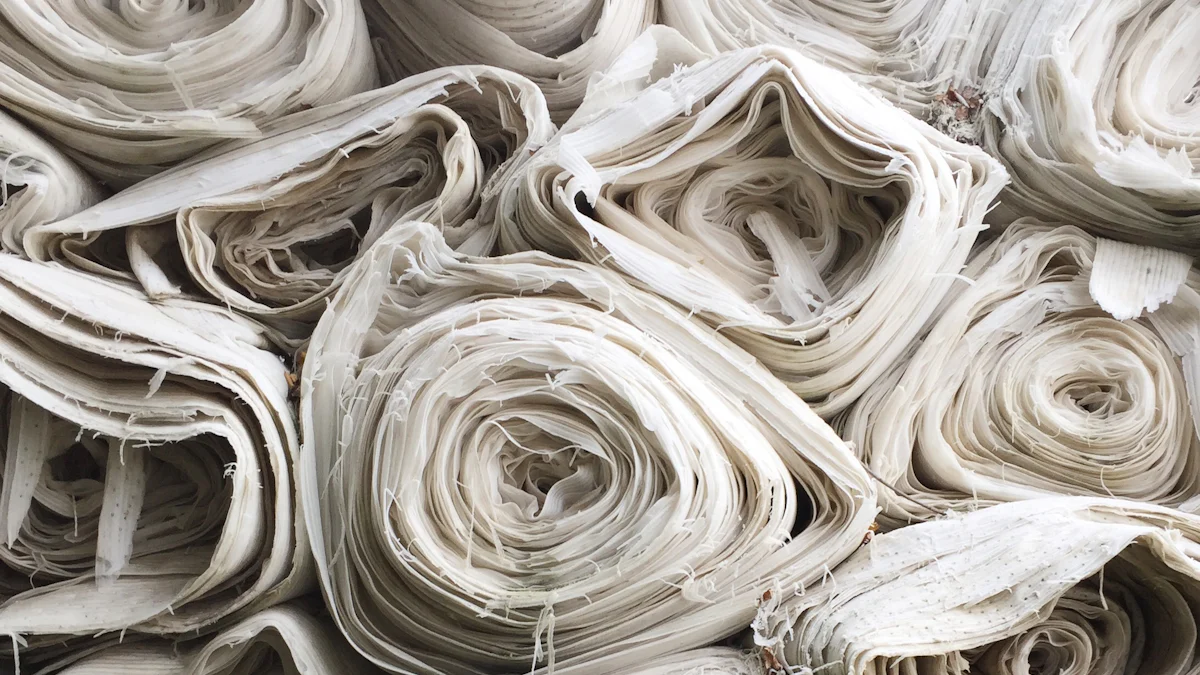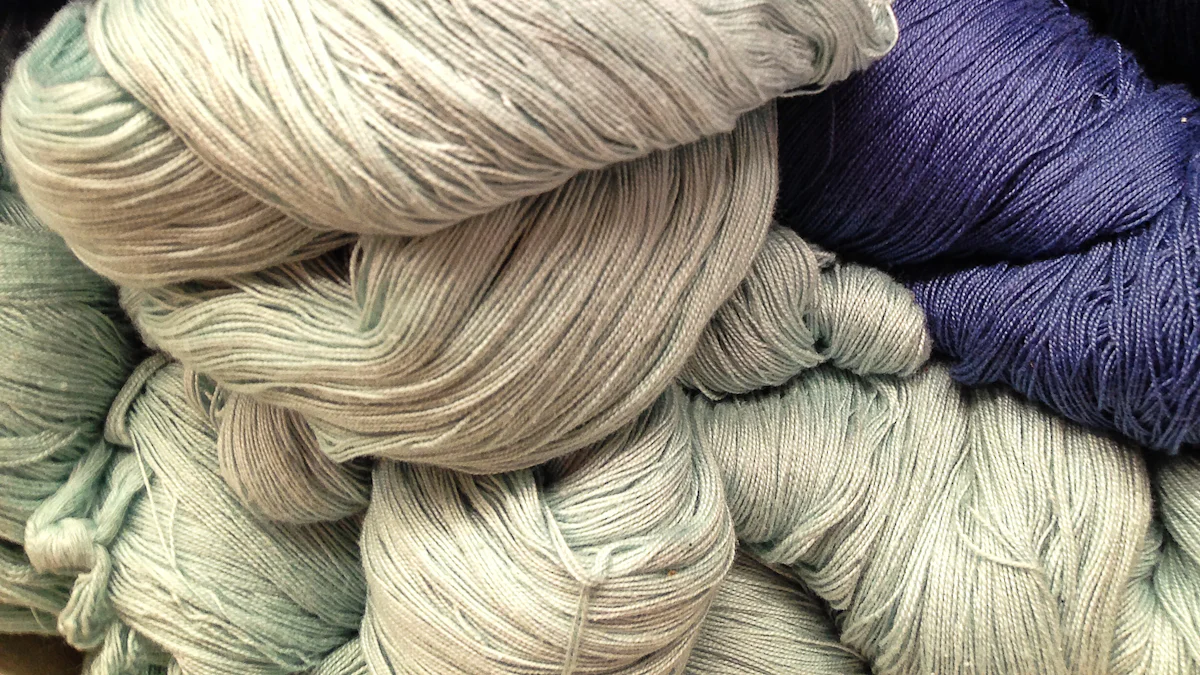
In the realm of yarn production, the environmental impact of traditional methods looms large. However, sport weight sock yarn emerges as a beacon of hope. This specialized yarn, known for its thickness and warmth, plays a crucial role in sustainable practices within the industry. As the world shifts towards eco-consciousness, the significance of sport weight sock yarn in reducing carbon footprint and promoting ethical sourcing practices cannot be overstated.
The Rise of Eco-Friendly Practices

In the realm of sustainable yarn production, the focus shifts towards utilizing sport weight sock yarn made from eco-friendly materials. This transition marks a significant step in reducing environmental impact and promoting ethical practices within the industry.
Sustainable Materials
When it comes to sustainable materials, manufacturers are increasingly turning to options like organic wool and recycled fibers. These choices not only benefit the environment but also result in softer, more breathable yarns that last longer.
Energy-Efficient Production
Embracing energy-efficient production methods is crucial for minimizing the carbon footprint. By incorporating renewable energy sources and implementing waste reduction techniques, manufacturers can significantly reduce their environmental impact.
Ethical Sourcing
Ethical sourcing practices play a vital role in ensuring transparency and fairness throughout the supply chain. Through fair trade practices and local sourcing, companies can support communities while maintaining high standards of social responsibility.
Benefits of Sustainable Yarn Production

Sustainable yarn production offers a myriad of benefits that extend beyond environmental conservation. By opting for eco-friendly materials and ethical practices, manufacturers pave the way for a brighter, greener future.
Environmental Impact
Reduced Carbon Footprint
Choosing sustainable yarn translates to a significant reduction in carbon emissions. Regenerated yarns, derived from recycled fibers, play a crucial role in lowering greenhouse gas emissions and minimizing environmental harm. This shift towards sustainable fashion not only promotes eco-consciousness but also contributes to a healthier planet.
Conservation of Resources
Pre-consumer recycled yarn sets itself apart by conserving energy and reducing waste sent to landfills. With up to 60% energy savings and a 65% decrease in waste accumulation compared to conventional production methods, sustainable yarn emerges as a champion of resource efficiency.
Consumer Health
Non-Toxic Materials
Sustainable yarns prioritize consumer well-being by utilizing non-toxic materials in their production. By steering clear of harmful chemicals and embracing natural elements, these yarns ensure that your creations are not only beautiful but also safe for everyday use.
Hypoallergenic Properties
For individuals with sensitive skin or allergies, sustainable yarn proves to be a gentle companion. Its hypoallergenic properties make it suitable for all ages, offering comfort and peace of mind with every stitch.
Economic Advantages
Long-Term Cost Savings
While the initial investment in sustainable yarn may seem higher, its long-term benefits far outweigh the costs. By creating durable and high-quality products that stand the test of time, you ultimately save money by reducing the need for frequent replacements.
Market Demand for Green Products
As consumers increasingly prioritize sustainability, there is a growing demand for green products like sustainable yarn. By aligning with this market trend, manufacturers not only contribute to a healthier environment but also cater to the evolving needs of conscious consumers.
Leading Manufacturers and Their Practices
Brand A
Embracing Sustainability:
Crafting yarn with a focus on environmental responsibility, Brand A stands out for its commitment to organic materials. By utilizing natural fibers that ensure ethical production, they contribute to a healthier planet while providing high-quality yarns for consumers.
Energy Efficiency at Its Core:
Brand A’s dedication to sustainability extends to their operations, where energy-efficient facilities play a crucial role. Through low-impact processing and dyeing practices, they minimize energy consumption and reduce their carbon footprint, setting a positive example for the industry.
Brand B
Innovation in Recycling:
At the forefront of sustainable practices, Brand B leads with innovative recycling programs. By repurposing materials and reducing waste, they showcase a creative approach to eco-conscious manufacturing. This initiative not only minimizes environmental impact but also inspires others in the industry.
Ethical Labor Standards:
Brand B prioritizes ethical labor practices, ensuring fair treatment of workers throughout their supply chain. By upholding stringent standards and promoting worker well-being, they create a positive impact on both individuals and communities involved in the production process.
Brand C
Engaging Communities:
With a focus on social responsibility, Brand C excels in community engagement. By actively supporting local initiatives and fostering partnerships, they strengthen ties within the community while promoting sustainable practices. This collaborative approach enhances the well-being of all involved.
Transparency in Sourcing:
Brand C shines through its commitment to transparency in sourcing. By providing clear information on their materials and processes, they empower consumers to make informed choices that align with their values. This openness fosters trust and accountability in every step of the production journey.
Crafting with sustainable yarns not only benefits the environment but also supports ethical practices throughout the production process. By choosing eco-friendly materials and advocating for transparent sourcing, consumers can actively contribute to a greener future. Embracing sustainable yarn brands aligns with the growing market demand for environmentally conscious products, fostering a culture of responsibility and innovation in the industry. As we look ahead, supporting these eco-friendly initiatives will continue to shape the landscape of sustainable yarn production, paving the way for a more ethical and environmentally friendly textile industry.

